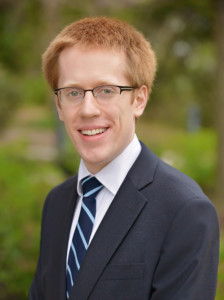
Daniel Gorman, Jr. is a history Ph.D. candidate at the University of Rochester, where he researches nineteenth-century American religion and culture. He received his M.A. from Villanova University and is a member of Phi Beta Kappa. From 2019 to 2021, Dan was an Andrew W. Mellon Digital Humanities Fellow at Rochester.
Tune in for today's #RSPmonday featuring Leigh Eric Schmidt and Dan Gorman discussing religion without God and the use of Thomas Paine as a symbol of atheism.
Jason Ānanda Josephson Storm and Dan Gorman discuss Storm's thoughts about the future of critical theory from his recent book Metamodernism.
Tune in for this month's Discourse! with Andie Alexander, Daniel Gorman, Jr., and Paul-François Tremlett as they discuss the upcoming elections in the Philippines and the Russian Orthodox church response to the invasion of Ukraine.
Dan Gorman speaks with Christopher Cantwell and Kristian Petersen about the future of the digital study of religion.
Join this month's host Dan Gorman and guests Maxinne Connolly-Panagopoulos and Sidney Castillo to find out what connects Lil' Nas X, Alabama's yoga ban and Polish black metal. As politics moves rightwards across Europe and the US, are we entering a period of pushback from conservative religious institutions against minority religions and secularism?
Dr. Ronit Y. Stahl and Dan Gorman discuss the United States military chaplaincy as a site of pluralism and cultural tension in the twentieth century.
Environmental issues take center stage in this month's episode of Discourse!, hosted by Michael Munnik with guests Suzanne Owen and Daniel Gorman Jr.
10 years in the making! Celebrate our decade of scholarship with this special episode, "Thanks for listening!"
In this month's episode of Discourse!, Theo Wildcroft, Dan Gorman and special emergency guest Vivian Asimos discuss the US Supreme Court's relationship to Christianity, how the Independent dealt with criticism of a review of a book critical of paganism, and religion, abuse and the idea of a ‘witch hunt’ in yoga and academia. Oh and something called coronavirus?
This month on Discourse!, David Robertson, Suzanne Newcombe and Daniel Gorman, Jr. discuss some recent figures on religious change, and why the term 'cult' is making a comeback in the US
Dr. Jennifer Graber's new book, "The Gods of Indian Country," grew out of lingering questions from her first book, a study of American Quakers and prisons. Graber learned that Quakers served as missionaries to Native American reservations in the West. She combined this interest in Quaker missions with her research into Native American captivity, so that the resulting narrative contrasts the motives of U.S. officials with Kiowa captives on an Oklahoma reservation.
In a free wheeling conversation, Dr. Jason Josephson-Storm and Dan Gorman discuss the intellectual history of religious studies and the myth that magic is dead.
The African American Spiritual Churches are combinatory religious sites, which blend Protestant, Catholic, Spiritualist, Haitian Voodoo, and Benin's traditional Vodun practices. Female leadership and business management has been essential in the history of these churches. Dr. Guillory's upcoming book draws on years of archival research, ethnographic observation, and oral history interviews to tell the story of these churches from 1920 to the present day.
In this interview, we discuss yoga as a new American phenomenon and the way that some evangelical Christians practice it. Brown provides a historic overview of bodily–religious practices in America, starting with mesmerism, occultism, osteopathy, and chiropractic in the nineteenth century.
My conversation with Maffly-Kipp begins with McGreevy's book, expands to include her work on Mormonism in contrast to Catholicism, and ends with a discussion of evangelical historian Mark Noll, in whose honor Notre Dame was originally going to host a conference, but was cancelled at the last minute.
Douglas R. Brooks, Professor of Religion at the University of Rochester, discusses how he became involved in the academic study of Hinduism, specifically Tantra and goddess-centered traditions. He begins with his training in Sanskrit and Tamil at Middlebury College, ...
This work is licensed under a Creative Commons Attribution- NonCommercial- NoDerivs 3.0 Unported License.
The views expressed in podcasts, features and responses are the views of the individual contributors, and do not necessarily reflect the views of The Religious Studies Project or our sponsors. The Religious Studies Project is produced by the Religious Studies Project Association (SCIO), a Scottish Charitable Incorporated Organisation (charity number SC047750).